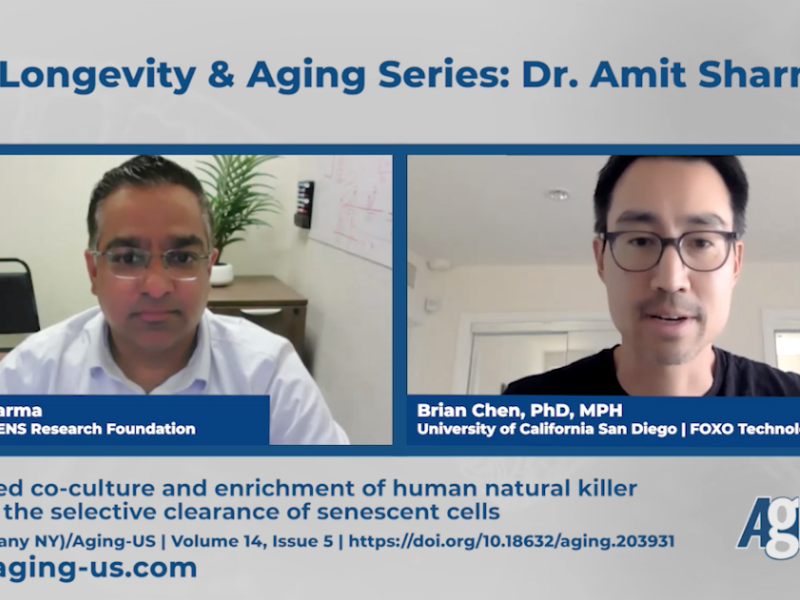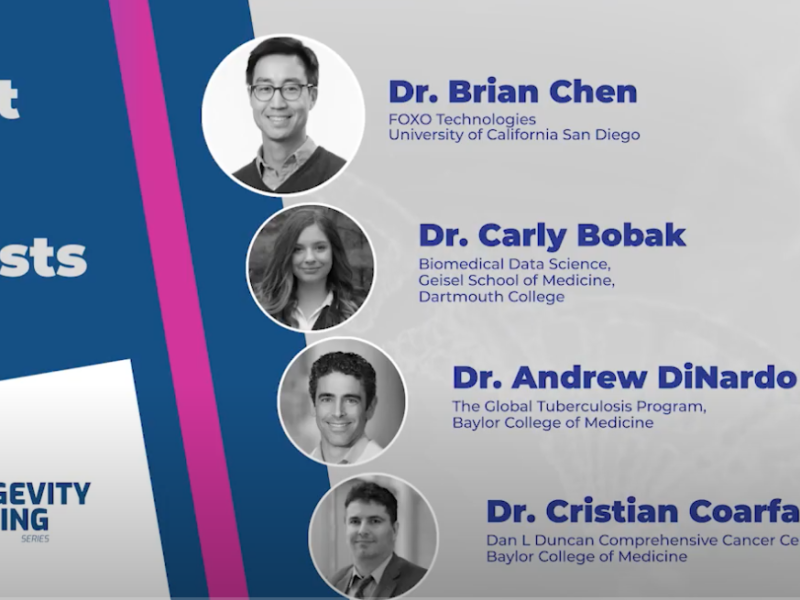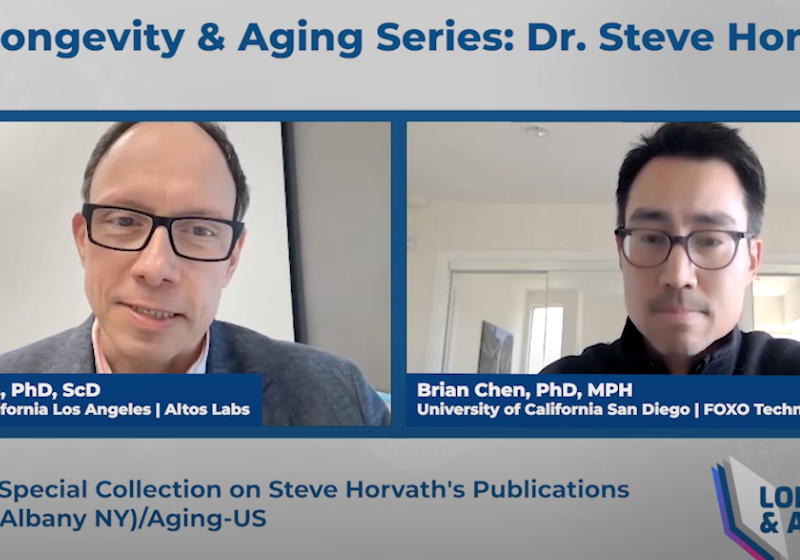Dr. Amit Sharma from the SENS Research Foundation details a research paper he co-authored that was published by Aging (Aging-US), entitled, “Enhanced co-culture and enrichment of human natural killer cells for the selective clearance of senescent cells.”
Aging (Aging-US) Authors

Dr. Amit Sharma from the SENS Research Foundation details a research paper he co-authored that was published by Aging (Aging-US), entitled, “Enhanced co-culture and enrichment of human natural killer cells for the selective clearance of senescent cells.”

Dr. May Beydoun discusses a research paper she co-authored that was published by Aging (Aging-US) as the cover for Volume 14, Issue 13, entitled, “Epigenetic clocks and their association with trajectories in perceived discrimination and depressive symptoms among US middle-aged and older adults.”

Drs. Drs. Carly Bobak, Cristian Coarfa, and Andrew DiNardo detail their research paper published by Aging (Aging-US), entitled, “Increased DNA methylation, cellular senescence and premature epigenetic aging in guinea pigs and humans with tuberculosis.”

Drs. Drs. Carly Bobak, Cristian Coarfa, and Andrew DiNardo detail their research paper published by Aging (Aging-US), entitled, “Increased DNA methylation, cellular senescence and premature epigenetic aging in guinea pigs and humans with tuberculosis.”

Dr. Steve Horvath and Dr. Brian Chen discuss the evolution of aging research and epigenetic clocks.

Dr. Steve Horvath and Dr. Brian Chen discuss the evolution of aging research and epigenetic clocks.

Dr. Steve Horvath, revisits 29 papers he co-authored that were published by Aging (Aging-US) and featured as a special collection of his research.

Dr. Steve Horvath, revisits 29 papers he co-authored that were published by Aging (Aging-US) and featured as a special collection of his research.

Dr. Cristina Aguayo-Mazzucato from Beta Cell Aging Lab, Joslin Diabetes Center, Harvard Medical School, discusses an editorial she co-authored that was published by Aging (Aging-US) in Volume 14, Issue 11, entitled, “Biological age in diabetes and precision medicine.”